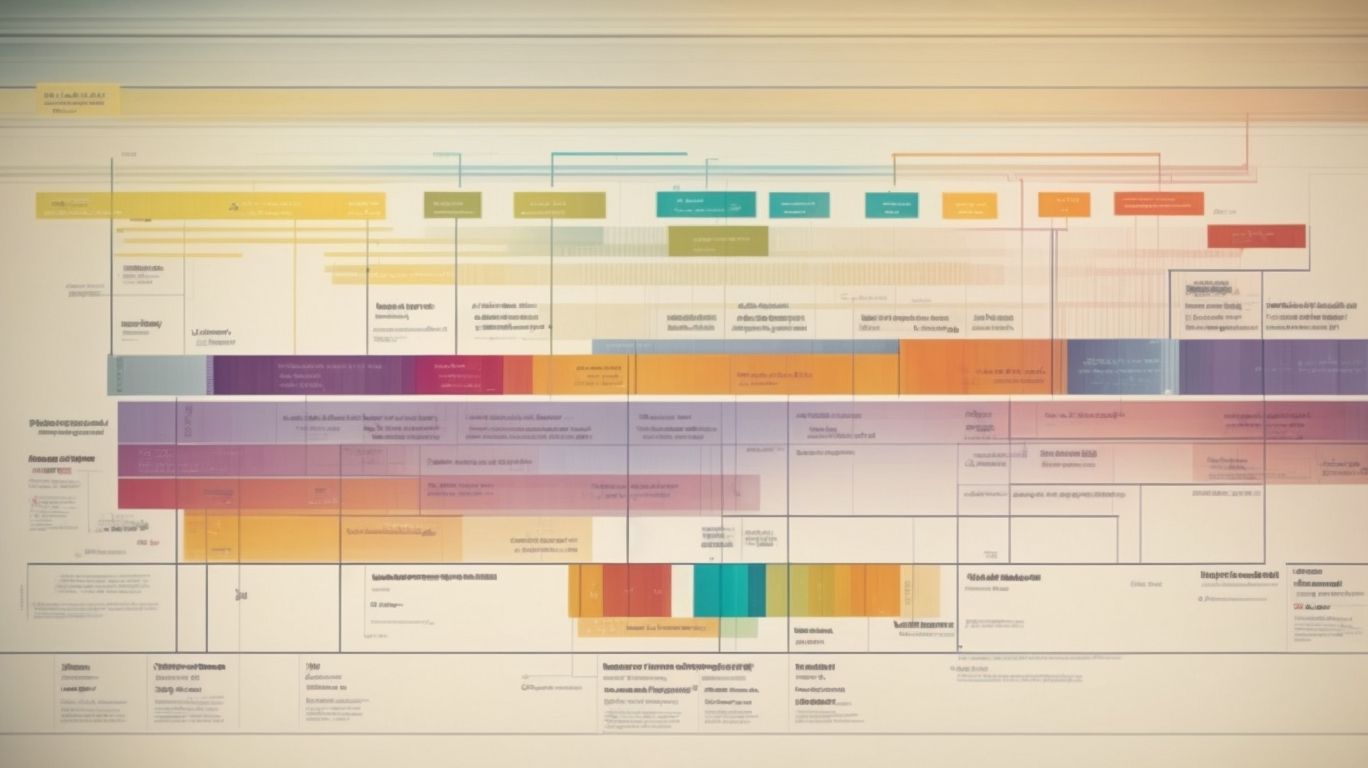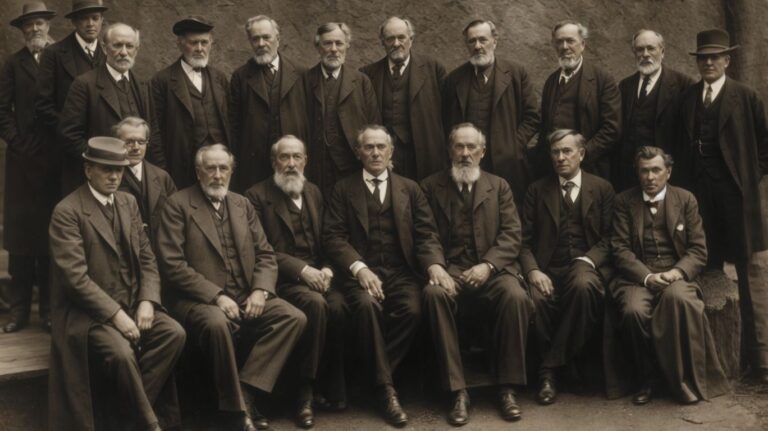Positive Psychology, a relatively new field in psychology, focuses on the study of human strengths, virtues, and overall well-being. Founded by Martin Seligman in the late 1990s, this movement challenges traditional psychology by emphasizing positive emotions, personal growth, and flourishing.
In this article, we will explore the key concepts of Positive Psychology, its development from humanistic psychology, and its applications in therapy, education, and organizations. Join us as we delve into the criticisms, research gaps, and the promising future of Positive Psychology.
Contents
- 1 What is Positive Psychology?
- 2 Who Founded Positive Psychology?
- 3 What are the Key Concepts of Positive Psychology?
- 4 How Did Positive Psychology Develop?
- 5 What are the Applications of Positive Psychology?
- 6 What are the Criticisms of Positive Psychology?
- 7 What is the Future of Positive Psychology?
- 8 Frequently Asked Questions
- 8.1 What is the definition of positive psychology?
- 8.2 What are the origins of positive psychology?
- 8.3 What are the key principles of positive psychology?
- 8.4 How has positive psychology evolved over time?
- 8.5 What impact has positive psychology had on the field of psychology?
- 8.6 How can positive psychology be applied in daily life?
What is Positive Psychology?
Positive psychology is a branch of psychology that focuses on understanding and promoting optimal human functioning, well-being, and positive emotions.
It emphasizes harnessing human potential and strengths to cultivate happiness, resilience, and fulfillment. Through scientific research and interventions, positive psychology strives to improve mental health and overall quality of life.
Unlike traditional psychology, which often dwells on pathology and illness, positive psychology accentuates the positive aspects of human experience, such as gratitude, hope, and love.
By shifting the focus from ‘what is wrong’ to ‘what is right’, positive psychology offers practical tools and strategies to enhance flourishing and psychological well-being.
Who Founded Positive Psychology?
Positive psychology was founded by Martin Seligman and influenced by the works of pioneers such as Abraham Maslow in the field of psychology.
Both Seligman and Maslow played pivotal roles in shaping the perspective towards mental health and well-being. Seligman, known for his research on learned helplessness and resilience, shifted the focus from traditional psychology’s emphasis on pathology to a more uplifting approach centered on human strengths and virtues. Maslow’s hierarchy of needs theory highlighted the importance of self-actualization and personal growth in achieving a fulfilling life.
Other significant psychologists who have made substantial contributions to positive psychology include Csikszentmihalyi, known for his concept of ‘flow’ and Snyder, who focused on the study of hope and optimism.
What are the Key Concepts of Positive Psychology?
The key concepts of positive psychology revolve around virtues, strengths, well-being, and fostering positive emotions in individuals.
Positive psychology, often referred to as the science of happiness, is deeply rooted in understanding what enables individuals to thrive and lead fulfilling lives. Central to this field is the belief that focusing on what is right with people, rather than solely addressing what is wrong, can lead to significant improvements in overall well-being.
One of the core principles of positive psychology is the identification and cultivation of signature strengths in individuals. By recognizing and actively using these strengths, people can tap into their full potential and experience a sense of fulfillment and accomplishment.
Along with strengths, positive psychology emphasizes the importance of positive emotions such as joy, gratitude, and hope. These emotions not only contribute to a higher quality of life but also play a crucial role in building resilience and facilitating healthy social connections.
Focus on Strengths and Virtues
Positive psychology places a strong emphasis on identifying and cultivating individual strengths and virtues, a concept championed by Martin Seligman.
In the realm of positive psychology, the focus on strengths and virtues serves as a powerful tool for personal growth and well-being. Seligman, a pioneer in this field, introduced the concept of positive psychology as a means to shift the traditional focus from pathology to strengths.
By nurturing what is already good within oneself, individuals can enhance their resilience, optimism, and overall life satisfaction. Seligman promoted practices that help individuals recognize and capitalize on their unique strengths, fostering a sense of fulfillment and purpose in their lives.
Importance of Positive Emotions
Positive psychology highlights the importance of positive emotions such as happiness in enhancing overall well-being and quality of life.
In the realm of positive psychology, researchers focus on how emotions like joy, gratitude, and optimism play a crucial role in promoting mental health and resilience.
Emotions serve as a guide, guiding individuals towards well-being and fulfillment. Positive emotions not only contribute to an individual’s happiness but also have a profound impact on their physical health, relationships, and productivity.
Studies have shown that cultivating positive emotions can lead to reduced stress levels, improved cardiovascular health, and increased longevity.
Emphasis on Personal Growth and Flourishing
Positive psychology underscores the significance of personal growth and flourishing in achieving optimal human functioning and overall well-being, a concept pioneered by Martin Seligman.
Personal growth encompasses the continuous development and improvement of an individual’s capabilities, strengths, and values. It involves a journey of self-discovery, self-improvement, and self-actualization. Embracing personal growth allows individuals to expand their potential, enhance their resilience, and cultivate a deeper sense of purpose and fulfillment in life.
The pursuit of flourishing, on the other hand, focuses on not just surviving but thriving in various aspects of life. It involves experiencing positive emotions, engaging in meaningful activities, nurturing strong relationships, and finding a sense of accomplishment.
How Did Positive Psychology Develop?
The development of positive psychology was influenced by humanistic psychology’s focus on well-being and countered the limitations of behaviorism in understanding human potential.
Humanistic psychology emerged in the mid-20th century with pioneers such as Abraham Maslow and Carl Rogers advocating for a more holistic approach to understanding human nature and emphasizing subjective experiences.
Positive psychology, which gained prominence in the late 1990s with the works of Martin Seligman, sought to shift the focus from pathology to human strengths and virtues, aiming to promote optimal functioning and fulfillment.
This shift marked a significant departure from the traditional emphasis on addressing mental illness and pathology that characterized behaviorism and early psychology.
Early Influences: Humanistic Psychology and Self-Actualization
Early influences on positive psychology include humanistic psychology’s emphasis on self-actualization and the works of pioneering psychologists such as Abraham Maslow.
Humanistic psychology, with its focus on the individual’s unique potential for growth and self-fulfillment, laid the groundwork for positive psychology’s uplifting approach to understanding human behavior and well-being.
Abraham Maslow’s hierarchy of needs theory, a cornerstone of humanistic psychology, emphasized the importance of fulfilling one’s higher-order needs for self-actualization and transcendence.
This emphasis on personal growth, intrinsic motivation, and the pursuit of one’s full potential has deeply influenced positive psychology’s research and interventions, steering the field towards a more holistic view of mental health and flourishing.
Criticisms of Traditional Psychology
Positive psychology emerged as a response to criticisms of traditional psychology, including the subjective nature of psychoanalysis and the limitations of behaviorism in explaining human behavior.
One of the main criticisms that paved the way for the rise of positive psychology was the focus on mental illnesses in traditional psychology, neglecting the study of what makes life worth living. By shifting the focus towards well-being, strengths, and optimal functioning of individuals, positive psychology sought to provide a more holistic approach towards understanding human behavior. The lack of empirical evidence and scientific rigor in psychoanalysis led to skepticism within the scientific community, paving the way for the emphasis on research and evidence-based practices in positive psychology.
Emergence of Positive Psychology Movement
The emergence of the positive psychology movement was catalyzed by Martin Seligman and Christopher Peterson at the University of Pennsylvania, marking a pivotal moment in psychology’s evolution.
This dynamic duo’s groundbreaking work not only revolutionized the traditional focus on fixing what’s wrong with individuals but shifted attention to strengths and well-being. Their seminal book, ‘Character Strengths and Virtues: A Handbook and Classification,’ provided a comprehensive framework identifying core virtues and character strengths.
Collaborating with a network of esteemed psychologists, Seligman and Peterson fostered a movement that transcended academic boundaries, gaining momentum worldwide. Their emphasis on empirical research and evidence-based practices solidified the foundation of positive psychology.
What are the Applications of Positive Psychology?
The applications of positive psychology span across positive therapy, counseling, and education, aiming to enhance well-being and foster growth in individuals.
Positive psychology has shown to be particularly valuable in therapy settings, helping individuals shift their focus from dysfunction and pathology towards strengths and resilience. By incorporating strength-based approaches and interventions, therapists can give the power to clients to cultivate optimism, gratitude, and a sense of purpose.
In counseling, positive psychology techniques such as mindfulness, positive reframing, and goal-setting play a vital role in promoting self-awareness, emotional regulation, and overall mental wellness. These strategies help clients build resilience, cope with challenges, and improve their quality of life.
In educational settings, positive psychology principles are integrated to create a conducive learning environment that fosters students’ academic achievement, well-being, and character development. Educators utilize strategies like growth mindset interventions, character strengths assessments, and positive feedback to enhance student motivation, engagement, and overall success.
Positive Therapy and Counseling
Positive therapy and counseling focus on enhancing well-being and mental health by utilizing the principles of positive psychology, as endorsed by organizations like the American Psychological Society.
Positive therapy and counseling aim to shift the traditional focus from merely treating mental health problems to fostering individual strengths and virtues. By emphasizing optimism, resilience, and personal growth, this approach guides individuals towards a more fulfilling and satisfying life. Practitioners in the field often employ techniques such as mindfulness, gratitude exercises, and strengths-based interventions to promote positivity and self-actualization.
Organizations such as the International Positive Psychology Association and the Positive Psychology Center at the University of Pennsylvania play pivotal roles in advancing research, education, and practice in positive psychology. They advocate for evidence-based interventions and aim to integrate positive psychology principles into various aspects of society, from education to workplace settings, for overall well-being.
Positive Education
Positive education integrates principles of positive psychology into educational practices, focusing on fostering well-being and realizing human potential in students.
By incorporating positive psychology techniques such as cultivating optimism, building resilience, and promoting mindfulness, educators can create a conducive learning environment that enhances students’ mental and emotional health. This approach not only helps students develop a positive mindset and coping strategies but also improves their academic performance and overall satisfaction with school. Positive education encourages the cultivation of character strengths, emphasizing virtues like kindness, gratitude, and perseverance, which are essential for personal growth and success in various aspects of life.
Positive Organizational Psychology
Positive organizational psychology centers on enhancing workplace environments and maximizing human potential through the application of positive psychology principles.
Positive psychology in organizational settings emphasizes fostering a culture of gratitude, resilience, and optimism to cultivate a more productive and fulfilling workplace. By integrating practices such as strengths-based leadership, employee engagement initiatives, and mindfulness training, organizations can create a positive work environment that boosts employee morale, creativity, and overall well-being. This approach not only enhances individual performance but also contributes to building stronger teams and improving organizational outcomes. Research indicates that organizations that prioritize positive psychology experience higher levels of employee satisfaction, retention rates, and innovation.
What are the Criticisms of Positive Psychology?
Critics of positive psychology point to concerns such as an overemphasis on positive emotions and the need for more research and evidence-based practices within the field.
While acknowledging these criticisms, it is important to recognize that positive psychology has made significant contributions by emphasizing strengths, virtues, and well-being, leading to a more holistic approach to mental health. The balance between positive and negative emotions is crucial in understanding human behavior and improving overall well-being. The field continues to evolve, with researchers exploring diverse aspects such as resilience, gratitude, and mindfulness, enhancing the depth and breadth of knowledge in this area.
Overemphasis on Positive Emotions
One common criticism of positive psychology is the perceived overemphasis on positive emotions like happiness, leading to potential oversimplification of complex human experiences.
While positive psychology has indeed brought attention to the importance of cultivating strengths and well-being in individuals, some argue that this emphasis on positive emotions may neglect the nuances of negative emotions and experiences that are also integral to human growth and understanding.
This focus on happiness, at times, could create pressure on individuals to constantly strive for a state of positivity, overlooking the necessity of acknowledging and processing negative emotions which are equally valid and essential for emotional balance.
The overemphasis on positive emotions may lead to a misconception that happiness is the sole indicator of well-being, potentially overlooking other crucial factors such as resilience, coping skills, and personal growth.
Lack of Cultural Diversity
Another critique of positive psychology is its perceived lack of emphasis on cultural diversity, calling for a more holistic approach that considers varied cultural perspectives.
Within the realm of positive psychology, critics argue that the predominant focus on individual well-being often overlooks the importance of cultural influences on mental health and happiness. By disregarding the diverse cultural backgrounds of individuals, positive psychology runs the risk of promoting a universal approach that may not resonate with all populations.
Advocates for a holistic multicultural perspective in positive psychology stress the significance of acknowledging and valuing the unique cultural contexts in which individuals exist. Embracing a culturally sensitive approach not only enhances the effectiveness of positive psychology interventions but also ensures inclusivity and relevance for a broader range of individuals.
Implementation of culturally informed practices and interventions in positive psychology is essential to address the criticisms surrounding its limited attention to cultural diversity. By integrating diverse cultural perspectives into research, theory, and practice, positive psychology can evolve into a more comprehensive and inclusive discipline that resonates with individuals from all cultural backgrounds.
Limited Research and Evidence
Critics have raised concerns about the limited research and evidence supporting certain aspects of positive psychology, prompting calls for more rigorous scientific validation from organizations like the American Psychiatric Association.
One of the main points of criticism pertaining to positive psychology is the reliance on anecdotal evidence and self-reported data, which may not always be reliable in scientific evaluations. Without robust empirical studies and longitudinal research, the field risks lacking credibility and applicability in diverse settings.
Scientific validation plays a crucial role in ensuring that the interventions and practices promoted by positive psychologists are truly effective and beneficial. Organizations such as the Society of Clinical Psychology and the Association for Psychological Science emphasize the importance of evidence-based practices in shaping the future direction of positive psychology.
What is the Future of Positive Psychology?
The future of positive psychology holds promise in further advancing well-being, exploring human potential, and integrating research-driven practices to solidify its standing in psychological discourse.
With the increasing emphasis on mental health awareness and the recognition of the importance of holistic well-being, positive psychology is likely to continue gaining traction in various fields, including education, business, and healthcare. Research-backed interventions aimed at enhancing individual strengths and resilience are expected to play a crucial role in shaping the future landscape of positive psychology.
In the coming years, new technologies and methodologies, such as virtual reality therapy and neurofeedback techniques, may revolutionize the way positive psychology interventions are delivered and measured. These innovations could provide more personalized and effective approaches to promoting well-being and unlocking human potential.
Frequently Asked Questions
What is the definition of positive psychology?
Positive psychology is a branch of psychology that focuses on understanding and promoting positive aspects of human behavior, such as happiness, well-being, and resilience.
What are the origins of positive psychology?
Positive psychology was founded by Martin Seligman in the late 1990s as a reaction to the traditional focus of psychology on mental illness and negative aspects of human behavior.
What are the key principles of positive psychology?
The key principles of positive psychology include studying and understanding positive emotions, character strengths, and social relationships to promote well-being and resilience.
How has positive psychology evolved over time?
Initially, positive psychology focused on individual well-being, but it has since expanded to include areas such as positive education, positive organizations, and positive interventions.
What impact has positive psychology had on the field of psychology?
Positive psychology has brought about a shift in the field of psychology, emphasizing the importance of studying positive aspects of human behavior and promoting well-being, rather than solely focusing on mental illness.
How can positive psychology be applied in daily life?
Positive psychology principles can be applied in daily life by practicing gratitude, engaging in meaningful activities, fostering positive relationships, and developing personal strengths and resilience.



